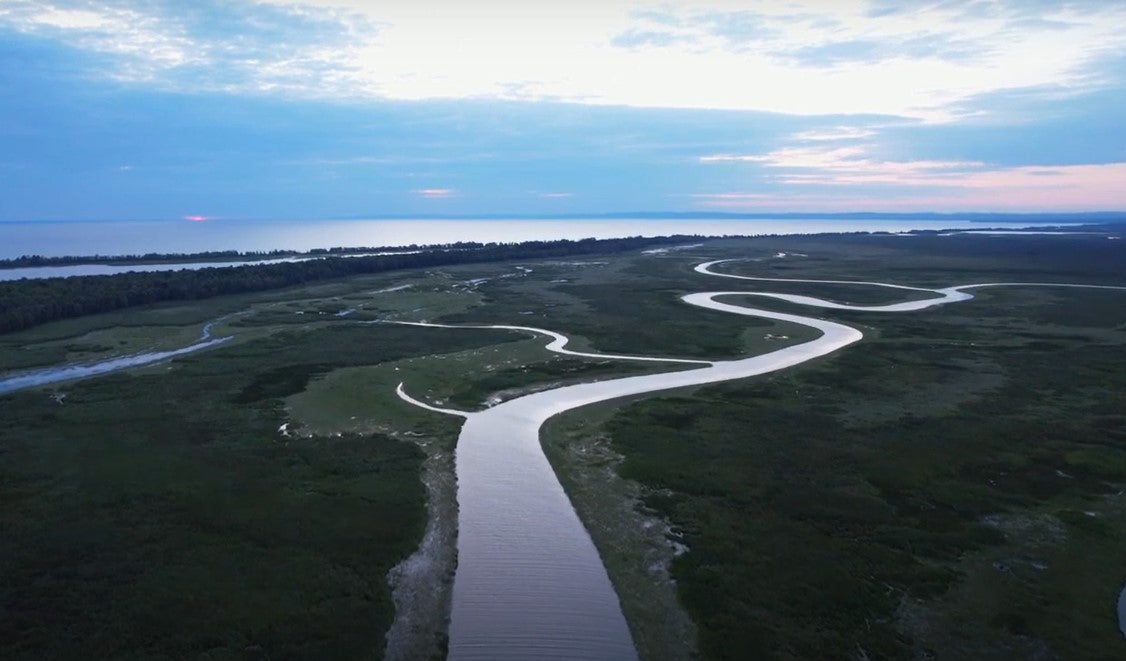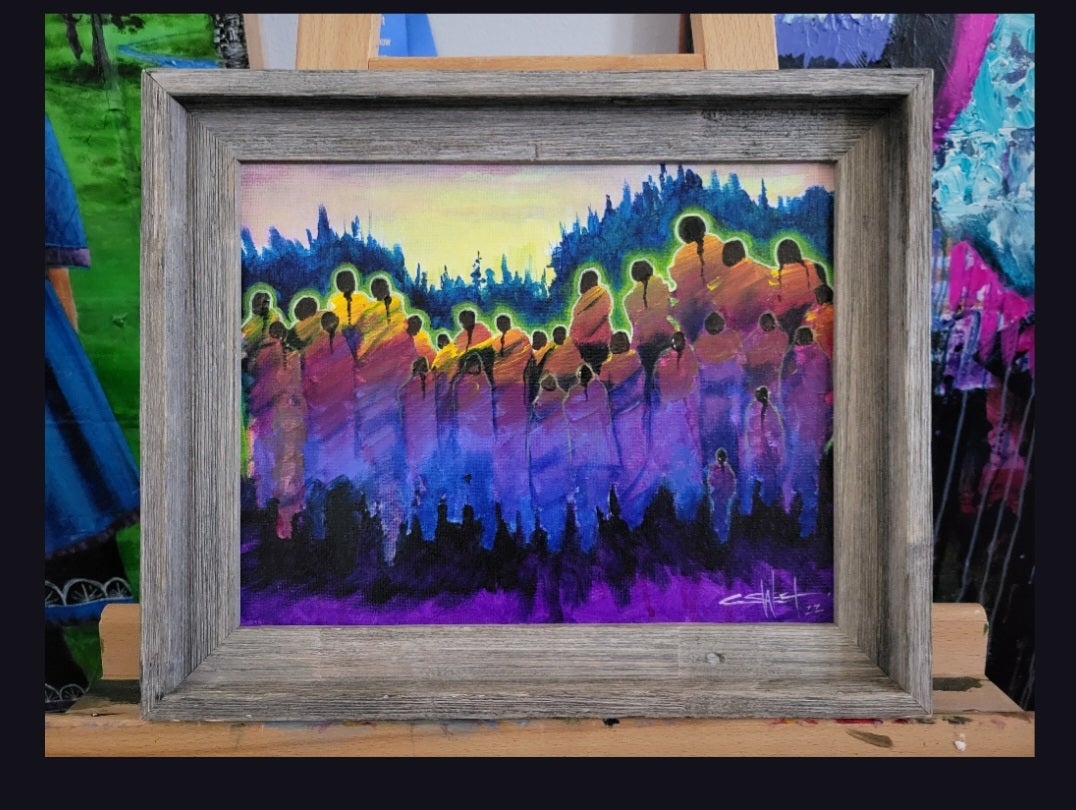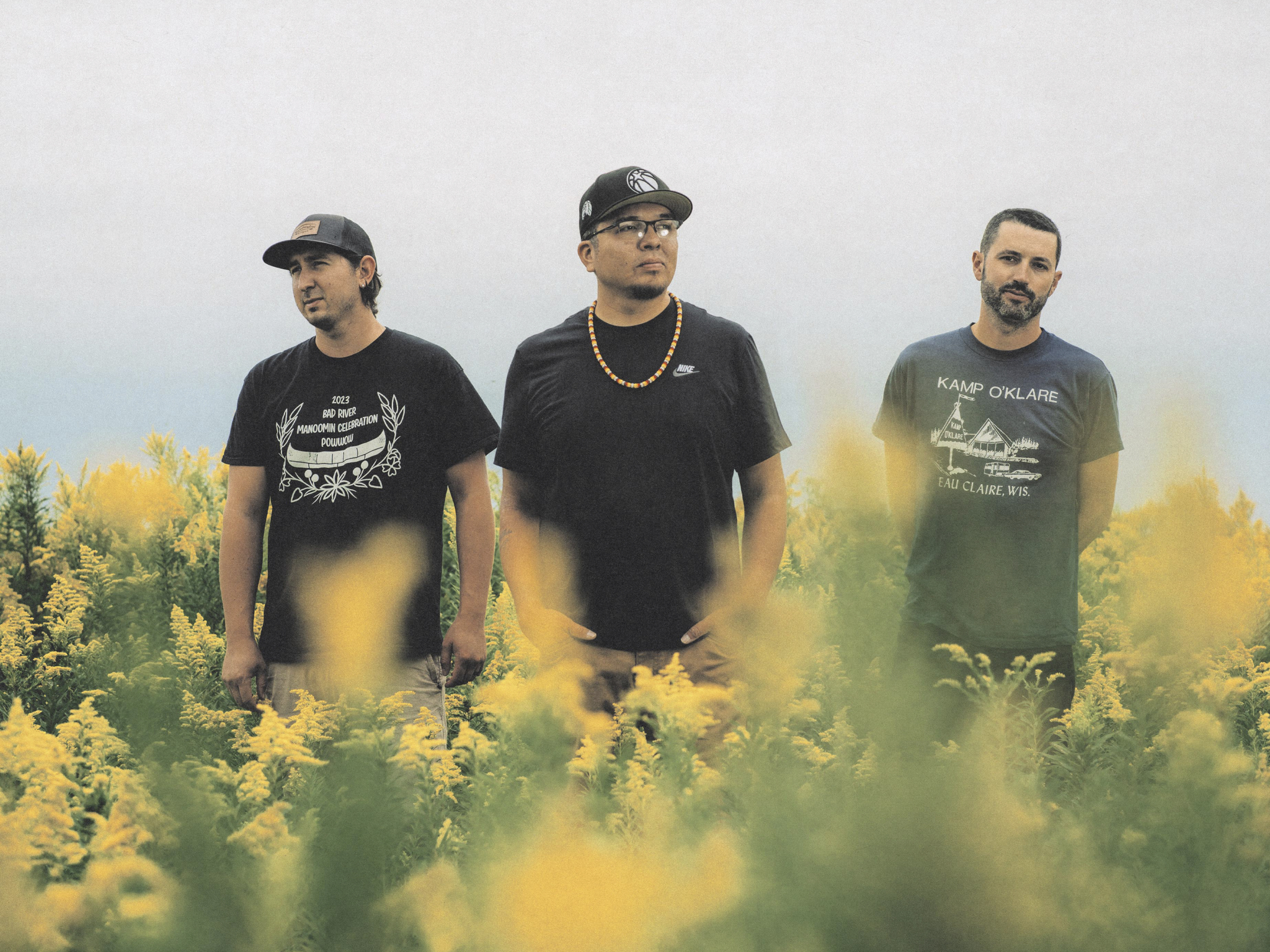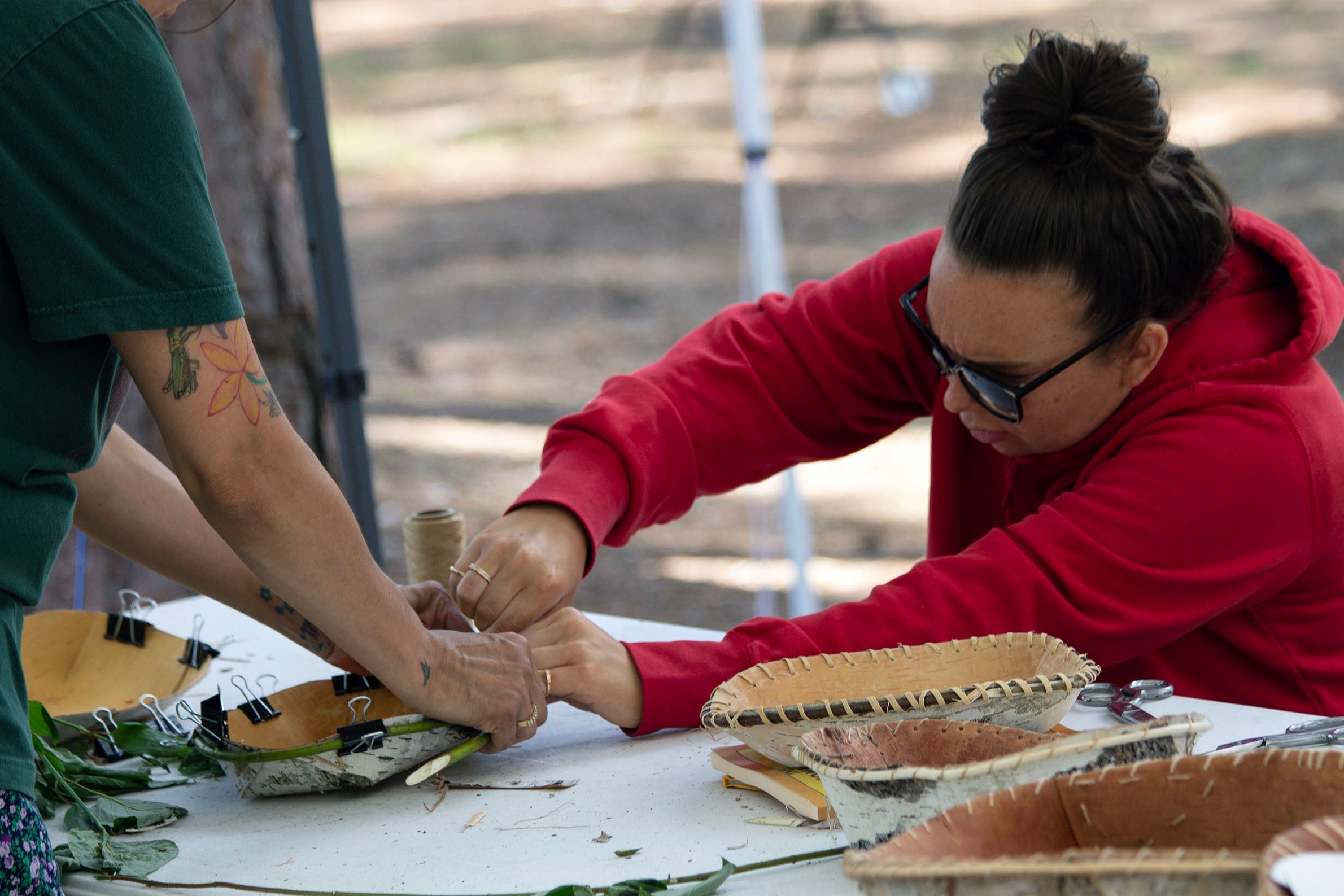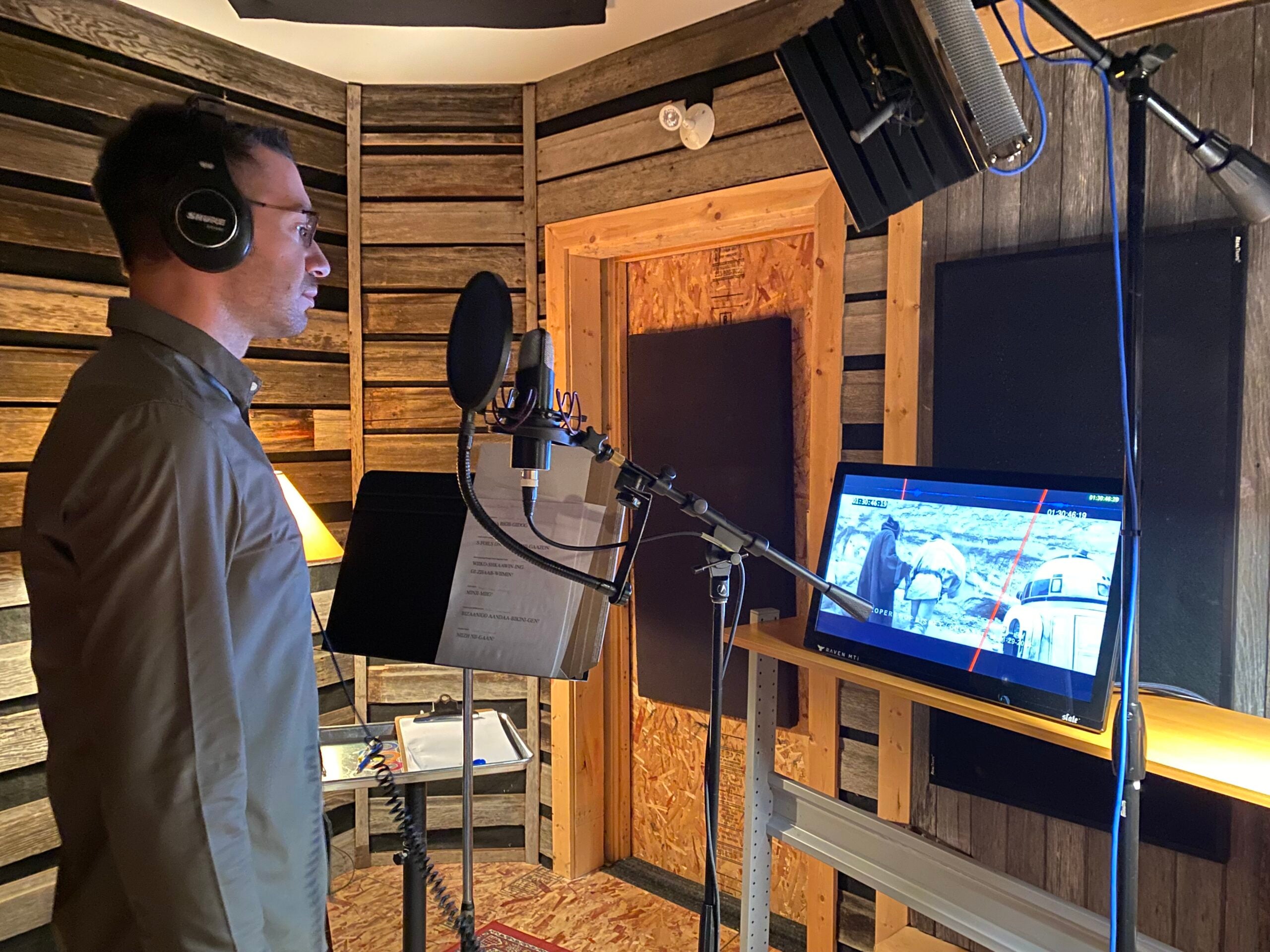More than 100 people gathered to remember a march that lead to the death of 400 Native Americans from Wisconsin, Minnesota and Michigan. Although it happened 162 years ago, they say this is relevant today with the suspected arson cases on the Lac Courte Oreilles reservation.
The ceremony is referred to as Mikwendaagoziwag Memorial Ceremony, which translates to “We remember them.”
In October in 1850 members of area Ojibwe tribes gathered at Sandy Lake for treaty annuity payments. What they didn’t know was that it was a plan from government officials to force them from their reservation land. They waited until early December but the payments were never fully dispersed. They began what would later be known as the “Sandy Lake Death March”, the trip home when hundreds died due to malnutrition and harsh winter conditions.
Stay informed on the latest news
Sign up for WPR’s email newsletter.
St. Croix Tribal Historic Preservation Officer Wanda McFaggen thinks it is important that people be educated on what happened and hopes history doesn’t repeat itself, “It’s a very tragic event that is little known in the schools and by the general public.”
Great Lakes Indian Fish and Wildlife Commission Chairman Mic Isham of Lac Courte Oreilles agrees it’s important that this event is brought to light. It’s relevant today, “Even through all of that, we still survive today and still stuff is happening. Just a week or two ago we had six of our sacred cultural sites burned on our reservation and that stuff doesn’t stop us in any way. It kind of makes you stronger.”
Turtle Mountain Ojibwe Kekek Jason Stark is involved in the ceremony and says they honor their ancestors in different ways though out the day, “We have the feast then we’ll offer tobacco set up the drum, sing some songs, smoke opwaagan (pipe), offer them to the people, let the people have a chance to speak on behalf of themselves or communities a lot of times they’ll do a little give away or give some things to the people in honor of those we are remembering.”
Neil Kmiecik works on the Bad River Reservation in Odanah. He began the day with about 30 others in canoes crossing Sandy Lake, “To paddle across the lake, it’s kind of like the final leg of the journey that the people took when they first came to Sandy Lake and I was kind of thinking about that when we were coming across this morning and how everybody was laughing and teasing and really having a good time and that makes you think that’s how the people came over here you know?”
Wisconsin Public Radio, © Copyright 2025, Board of Regents of the University of Wisconsin System and Wisconsin Educational Communications Board.
